
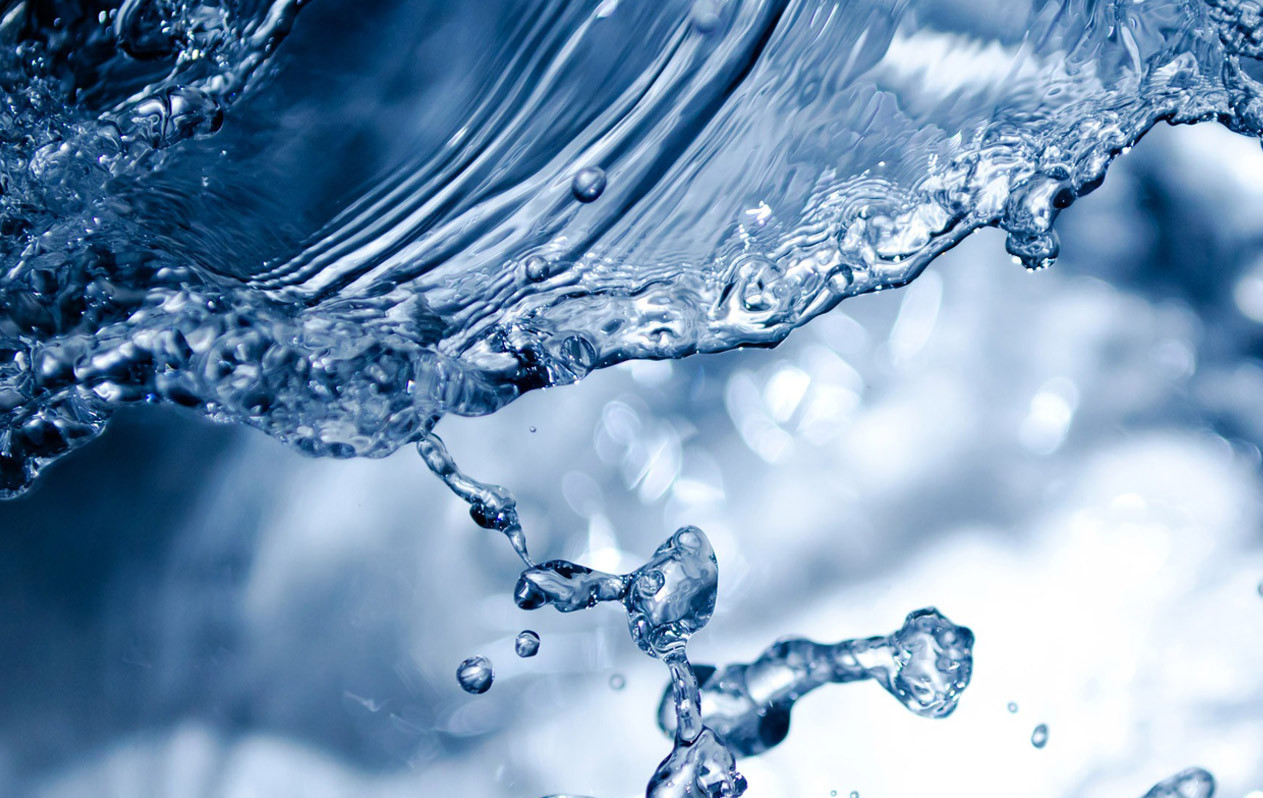
To ensure a lasting supply of clean drinking water of sufficient quantity and high quality for everyone in a protected environment, we need to start planning for the future today. Political support is needed here, including at the European level.
Drinking water hygiene; © Foto: CC0-Lizenz
Our request: clean drinking water 24/7/365 for everyone
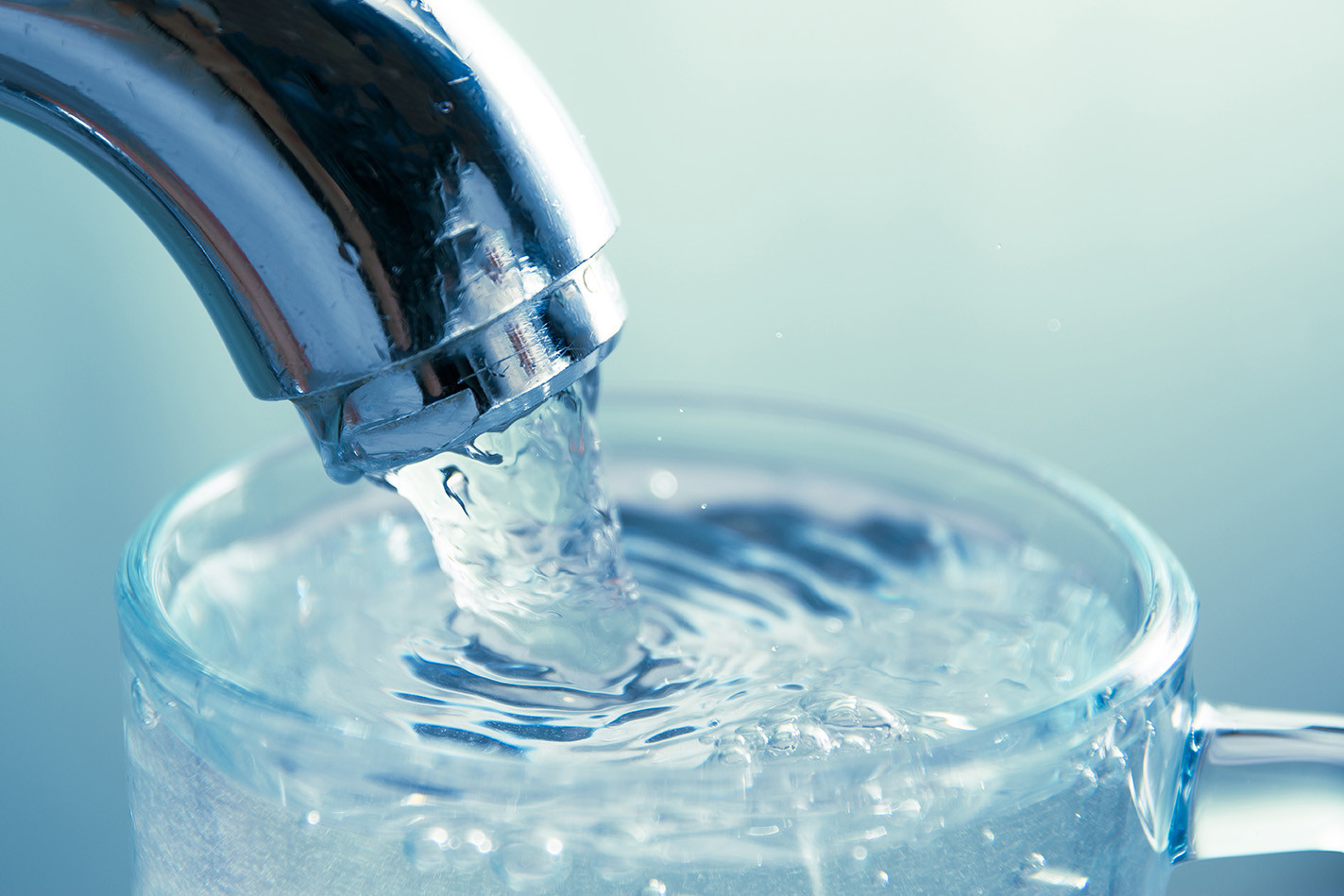
Vision of a water conscious society
We are convinced that clean water will only be available to everyone in sufficient quantities and in high quality in a protected environment. This requires a water-conscious society that attaches great importance to water as the basis of life for humans, animals and plants. That is why we are committed to a safe and high-quality drinking water supply in Germany – from source to consumer. Our particular concerns are:
Climate change adaptation
Climate change threatens the world's future water supply. Even in Germany, extreme weather events such as droughts or floods have different effects on the water supply in terms of time and space. Future-proof solutions are needed to adapt to the consequences of climate change, to ensure efficient and climate-resilient asset management and to safeguard water quality, so that high-quality drinking water is available in sufficient quantities for everyone in the long term. That is why the DVGW launched the Innovation programme water in 2021. It is designed to help close knowledge gaps regarding the connection between climate change and water supply and to derive recommendations for action.
In addition to our specialist work and networking – including at the European level – we have drafted a vision of a water conscious society in the year 2100, identified measures that should be implemented by 2030, and launched research projects that will lead to a secure water supply even in the face of climate change.
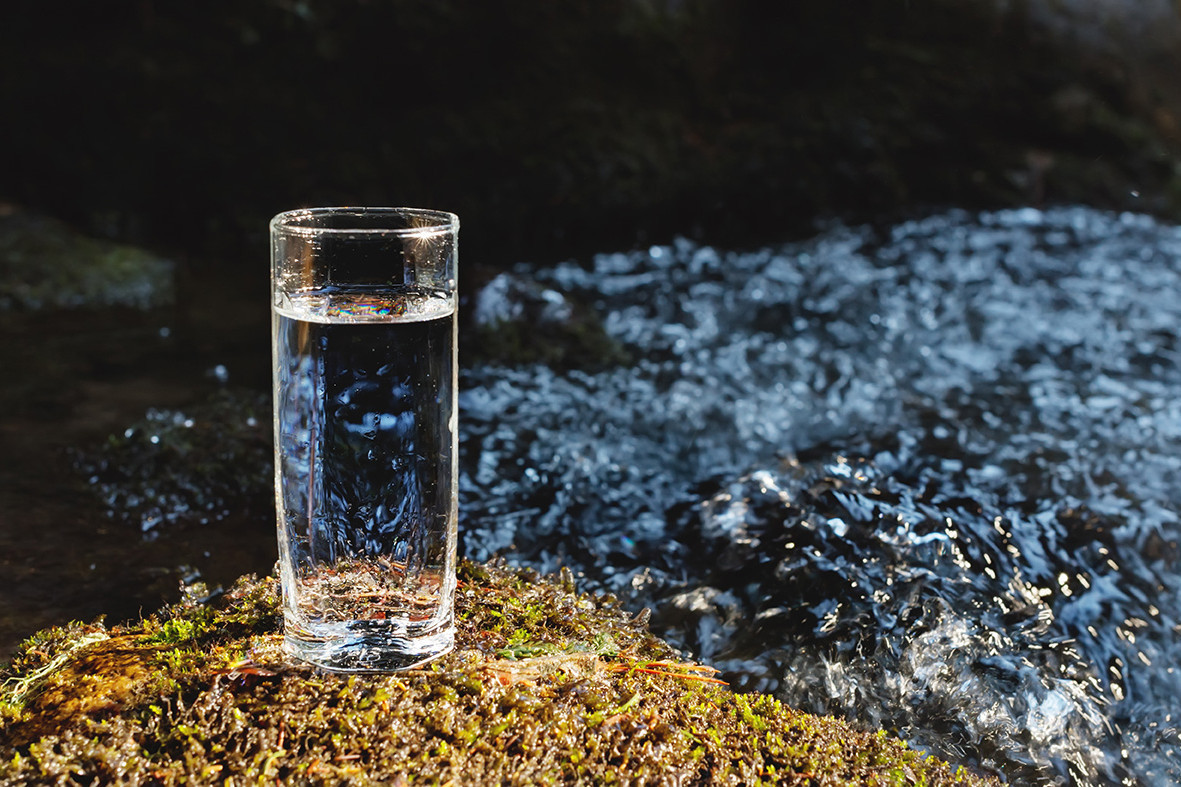
Public water supply systems must be flexible enough to adapt to constantly changing conditions and requirements, and to this end they must make investment decisions that are fair to all generations in order to maintain a high level of supply security. This adaptability is crucial for a secure water supply as a service of general interest. We are therefore committed to the following concerns at both national and international level:
With the “Profile of the German Water Sector”, the editors (six German water associations) provide an up-to-date overview of water supply and sanitation in Germany. This gives the interested public and policymakers the opportunity to obtain comprehensive information about the performance of the industry, the variety of its tasks and current challenges.
With its research, the DVGW develops forward-looking approaches and innovative solutions for a climate-resilient water supply that is secure in terms of quality and quantity. In addition to its existing practice-oriented research funding, the DVGW launched the DVGW Future Programme in 2021. The aim is to enable the sustainable use of all water resources for Germany. In this endeavour, it is supported by its water-related research institutes: DVGW-TZW, the DVGW Research Centre at the Engler-Bunte-Institut (EBI) of the Karlsruhe Institute of Technology (KIT), the IWW and the DVGW Research Centre at the Hamburg University of Technology (TUHH).
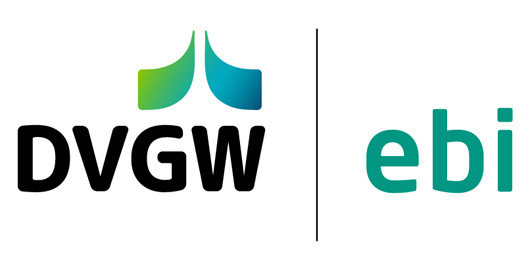
The DVGW Research Center EBI works to ensure that water, as a critical resource for public services, can be provided through the drinking water supply. An adequate quality and quantity of water also needs to be supplied for in industrial processes. We conduct research on water quality and water technology. The main topics are
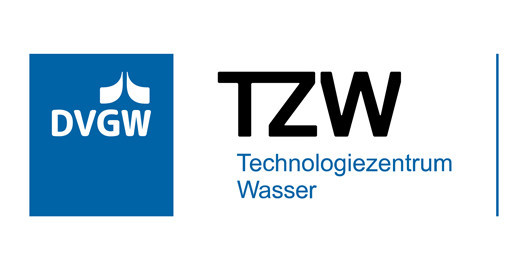
DVGW TZW identifies itself as a driving force for the development of innovations that encompass the entire water cycle. In About 50 Research Projects each year TZW develops concepts ans processes that can be implemented successfully in practice. The focus is on the topics of
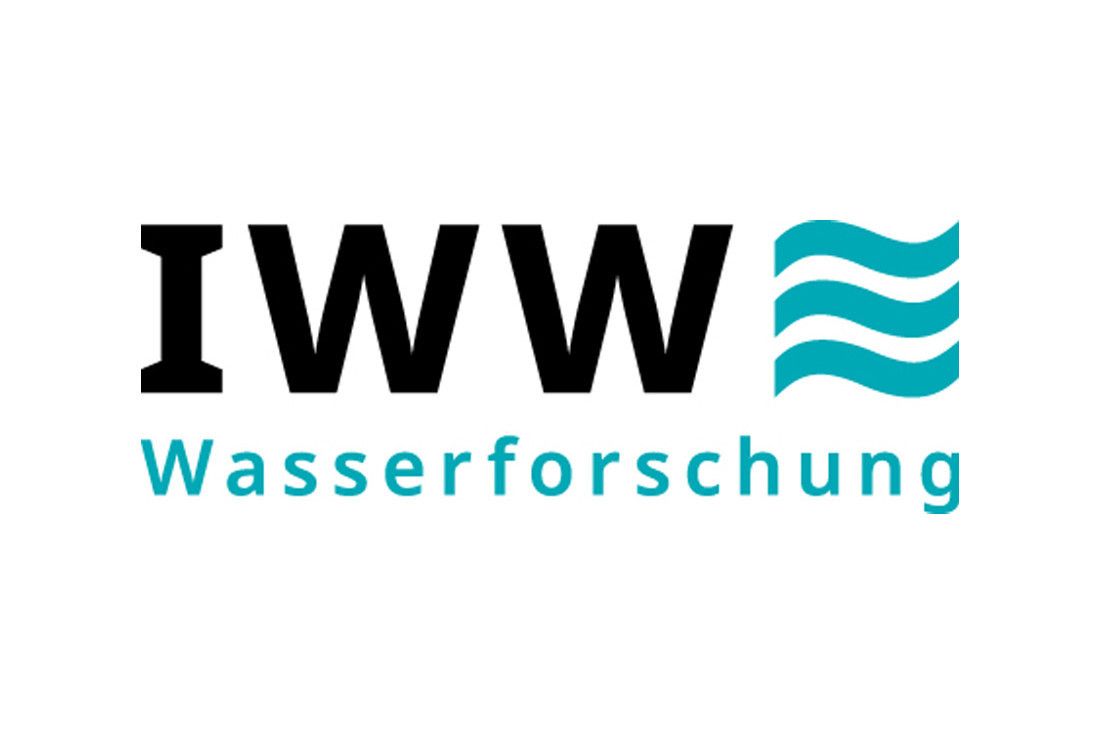
The IWW Institute for Water Research gGmbH works on an interdisciplinary basis – from basic research to the development of practical applications. Its research areas are asset management, digitisation and communication, climate change, substances and organisms, and technology and products. It works on projects in a regional context and in Europe-wide research collaborations, in which it also performs overarching coordination tasks.
To the IWW research website (in German only)
The DVGW Research Centre TUHH at the Hamburg University of Technology carries out applied research and consulting for water supply companies and industry. The topics range from water catchment and treatment to drinking water distribution. This includes, among other things, the optimisation of treatment processes, hygienic issues related to drinking water distribution and energy efficiency issues. The water supply in northern Germany, with its special conditions, is one of the research centre's main areas of focus.
The following management summaries are currently available in English:
We advise, plan and inform: the technical consultancy services offered by the DVGW Group
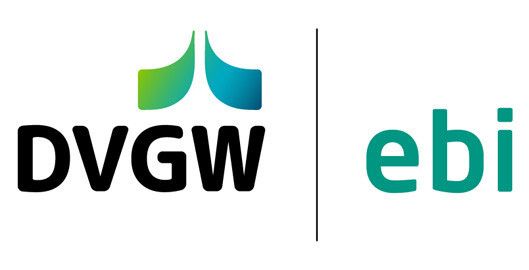
DVGW EBI
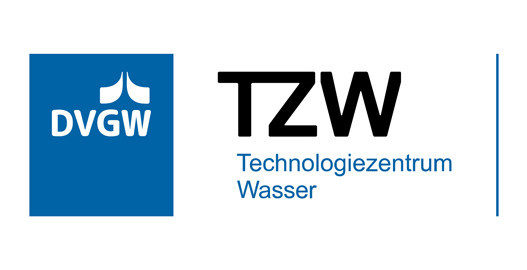
DVGW-TZW:

IWW Analytik and Service GmbH:
To the service website of IWW Analytik und Service GmbH (in German only)
The DVGW is a standard setter for drinking water. Many of the DVGW's technical rules are also available in English. They cover the following topics:
The DVGW Technical Rules are distributed by wvgw Verlags GmbH.

The DVGW works closely with numerous international organisations und partners and is involved in international research collaborations. Its experts are also represented in European and international standardisation committees that are important for the gas and water industry. The DVGW's office in Berlin is responsible for the DVGW's activities in German energy and water policy. The DVGW's European networks in Brussels are also coordinated here.
The DVGW is a member of or is represented in the following associations:
Associations: EurEau, IWA
Technology and standardisation: CEN, ISO
Overview
Around 5,600 businesses and companies with approximately 38,000 employees are responsible for public water supply in Germany, making them an indispensable pillar of society. 72 per cent of the water produced goes to the ‘household and small business’ sector. The water is obtained from groundwater, bank filtrate and enriched groundwater, river, lake and dam water, as well as spring water (in this order). The water use index for Germany is likely to be between eight and nine per cent in the coming decades. Therefore, it can still be assumed that the use of natural freshwater resources is sustainable.
Legal basis
The EU Water Framework Directive requires member states to ensure the protection of drinking water resources. The EU Water Framework Directive has been transposed into German law via the Federal Water Act (WHG) and the water acts of the federal states, as well as additional implementing ordinances. The Infection Protection Act and the EC Drinking Water Directive form the legal basis for safeguarding and monitoring the supply of high-quality and hygienically safe drinking water. Its basic requirements are specified in the Drinking Water Ordinance.
Interaction between state, municipalities and water suppliers
In a highly industrialised, intensively farmed and densely populated country like Germany, water resources are subject to a wide range of usage demands and significant pressures. Ensuring the best possible water quality despite these pressures is the responsibility of the state, which is supported by water management companies. In Germany, water supply and wastewater disposal are core tasks of public services and are the responsibility of municipalities or other public bodies. Their democratically legitimised bodies make the strategic decisions regarding organisational forms, participations and cooperations.
The technical self-regulation in Germany, together with technical rules and standards, forms the basis for the work of water suppliers.
Simply click on the info icons to learn more about the respective system.
"Sustainable protection of water resources", "Water supply in accordance with DVGW standards" and "safe installations inside buildings": Three barriers are the basis for safety and sustainability

Professional plumbers
Planning, construction and maintenance of installations inside buildings is the exclusive domain of qualified plumbers with technical know-how and expertise.
Use of DVGW-certified products and materials
The DVGW as certified body tests the behaviour of materials and products in contact with drinking water to assure fitness for this purpose.
Safety devices to secure the water distribution network
Backflow preventers and other devices ensure that no cross connections between the installations inside buildings and the water distribution network occur.

Over 300 DVGW Technical Rules cover all processes in water supply
Multi-step approach to water treatment
At the simplest level, natural treatment measures, e.g. filtration. At the most advanced level, state-of-the-art methods, e.g. membrane technologies.

Establish drinking water protection areas
Protection of water catchment areas is an efficient instrument in water resources management in order to provide wholesome and cleandrinking water for the customer.
Monitoring with foreward view
Performance of monitoring in the catchment area assures early warning of hazards to the quality of water resources.
Cooperation with other stakeholders
Water resources are mainly affected by diffuse pollution, in particular from agriculture. Measures to protect water resources impacted by various local activities should ideally worked out in conjunction with stakeholders.